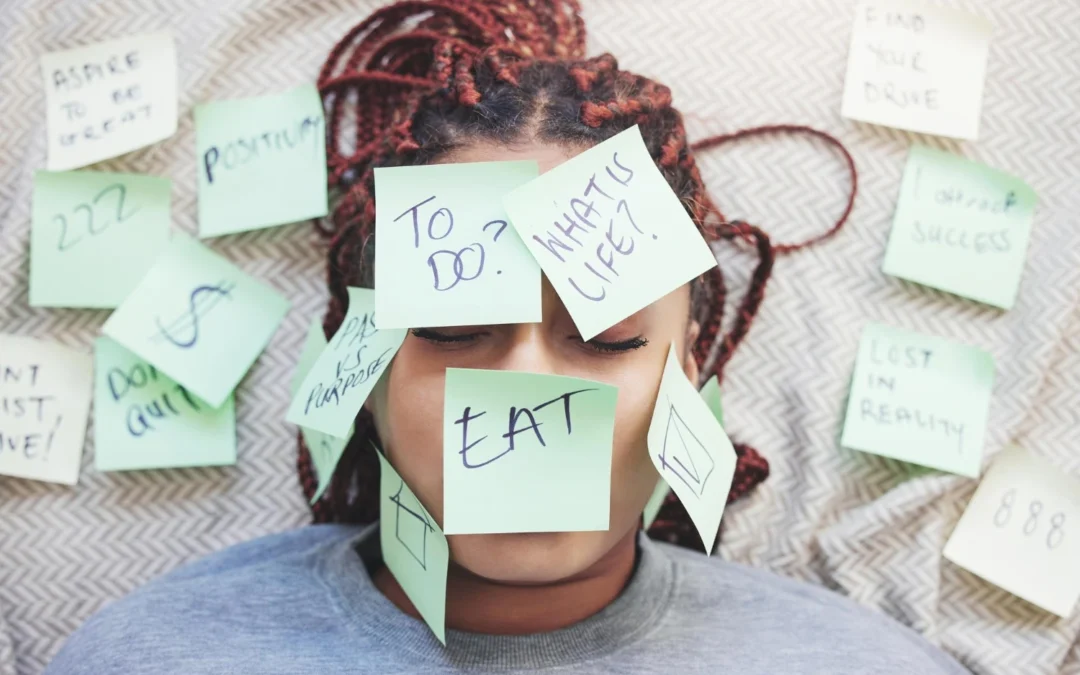In a fast-paced world filled with stress, information overload, and ever-changing challenges, maintaining a balanced mindset is more crucial than ever. Research shows that small, consistent mental health habits significantly impact well-being, helping individuals cultivate resilience, reduce stress, and improve overall happiness. As we step into 2025, it’s time to prioritize mental wellness through simple yet powerful daily routines.
Why Mental Health Habits Matter for Balance
The connection between habits and mental well-being is backed by science. According to the American Psychological Association (APA), consistent routines help regulate emotions, enhance focus, and promote long-term stability. When practiced regularly, positive mental health habits create neural pathways that reinforce a resilient and optimistic mindset.
Mental health habits aren’t just about avoiding stress—they are about proactively building resilience. By incorporating small, daily changes, we can create a lifestyle that fosters emotional well-being, strengthens cognitive function, and reduces the likelihood of burnout or mental fatigue.
Practical Mental Health Habits for a Balanced Mindset
Prioritize Quality Sleep
Sleep is foundational for mental health. The National Sleep Foundation recommends 7-9 hours of sleep per night for optimal cognitive function. Poor sleep can lead to anxiety, depression, and increased stress levels.
Tips to Improve Sleep:
- Maintain a consistent bedtime and wake-up schedule.
- Reduce screen time at least one hour before bed.
- Create a relaxing nighttime routine with meditation or reading.
- Invest in a quality mattress and blackout curtains for optimal sleep hygiene.
Practice Daily Mindfulness and Meditation
Mindfulness reduces stress, increases self-awareness, and improves emotional regulation. Studies from Harvard Medical School indicate that just 10 minutes of mindfulness daily can significantly lower cortisol (stress hormone) levels.
Ways to Integrate Mindfulness:
- Start the day with 5-10 minutes of deep breathing.
- Engage in mindful walking by focusing on sensations.
- Use guided meditation apps like Headspace or Calm.
- Try journaling as a way to process emotions and gain mental clarity.
Fuel Your Brain with Proper Nutrition
What you eat directly affects how you feel. A diet rich in omega-3s, antioxidants, and probiotics supplements supports brain health and mood stability.
Brain-Boosting Foods:
- Fatty fish (salmon, walnuts) for omega-3s.
- Dark leafy greens (spinach, kale) for mental clarity.
- Fermented foods (yogurt, kimchi) for gut-brain connection.
- Berries, nuts, and seeds for antioxidant support.
Stay Physically Active
Exercise releases endorphins, known as “feel-good” hormones. The World Health Organization (WHO) suggests that just 30 minutes of moderate exercise daily can reduce symptoms of depression and anxiety.
Simple Ways to Move More:
- Take a brisk 10-minute walk after meals.
- Stretch or do yoga in the morning.
- Join a dance or fitness class for fun movement.
- Try resistance training or body-weight exercises to improve strength and mental discipline.
Practice Gratitude Journaling
Writing down things you’re grateful for shifts your mindset from stress to appreciation. A study from the Journal of Personality and Social Psychology found that gratitude journaling increases happiness by 25%.
How to Start:
- Write down three things you’re grateful for daily.
- Reflect on small wins, even on tough days.
- Use a gratitude app for reminders.
- Try sharing gratitude with a friend or partner to strengthen connections.
Limit Digital Overload
Constant notifications and screen exposure can overwhelm the brain, leading to anxiety and poor focus. Digital detoxing helps restore mental clarity.
Strategies to Reduce Screen Time:
- Set app time limits on social media.
- Implement a “no-phone” rule during meals.
- Take regular breaks from screens using the 20-20-20 rule (every 20 minutes, look 20 feet away for 20 seconds).
- Schedule “screen-free” weekends or evenings for better mental clarity.
Stay Connected with Supportive People
Strong social connections are vital for mental well-being. The Harvard Study of Adult Development, a 75-year-long research project, found that meaningful relationships contribute more to happiness than wealth or success.
Ways to Strengthen Relationships:
- Schedule weekly catch-ups with loved ones.
- Join a community group or support network.
- Practice active listening to deepen connections.
- Engage in acts of kindness, such as writing a heartfelt note or checking in on a friend.
Set Realistic Goals and Celebrate Progress
Achievable goals boost motivation and self-confidence. According to neuroscience research, small victories trigger dopamine release, reinforcing positive behavior.
Tips for Goal Setting:
- Break large goals into smaller, manageable steps.
- Track progress with a journal or habit tracker.
- Celebrate small wins with rewards or positive affirmations.
- Reframe failures as learning experiences and adjust your approach.
Engage in Creative Activities
Creativity isn’t just for artists—it’s a powerful tool for mental well-being. Activities like painting, writing, or playing music help process emotions and relieve stress.
How to Tap into Creativity:
- Try adult coloring books or doodling.
- Take up a new hobby like photography or knitting.
- Express yourself through journaling or poetry.
- Experiment with cooking new recipes as a creative outlet.
Practice Self-Compassion and Positive Affirmations
Being kind to yourself is one of the most overlooked mental health habits. Self-compassion leads to reduced stress and increased emotional resilience.
Ways to Cultivate Self-Compassion:
- Speak to yourself as you would a close friend.
- Write down three things you appreciate about yourself daily.
- Use positive affirmations to counter negative thoughts.
- Accept mistakes as part of growth rather than failures.
Building a balanced mindset in 2025 starts with integrating small, consistent mental health habits into daily life. Prioritizing sleep, mindfulness, nutrition, exercise, and social connections can lead to lasting well-being. By making intentional choices every day, you pave the way for a healthier, happier, and more resilient mind.


